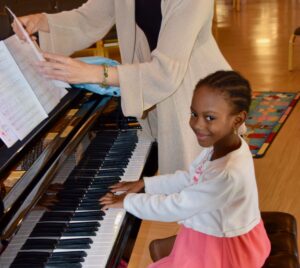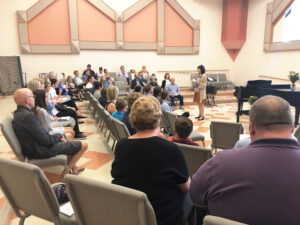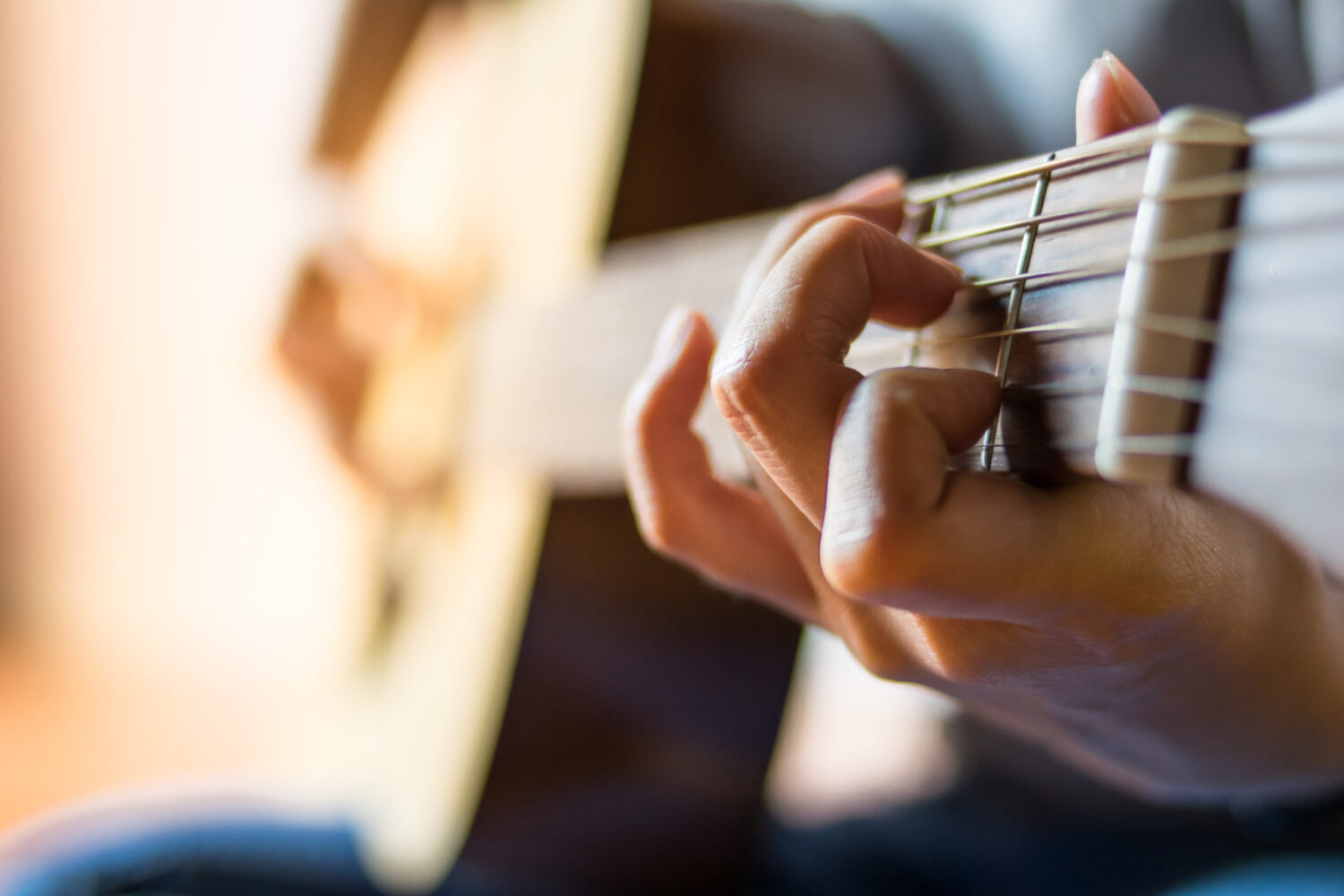Unlock Your Musical Potential with Private Instruction

Are you passionate about music but unsure how to take your skills to the next level? Look no further, because The Music Lesson Cafe is here to unlock your full potential. Whether you’re a beginner or an experienced musician, private lessons offer a personalized and immersive learning experience that will help you master your instrument of choice.
With the guidance of professional music instructors, you’ll receive individualized attention tailored to your specific goals and aspirations. You’ll learn proper technique, theory, and musicality while gaining valuable insights from seasoned experts. Whether you want to play classical/popular piano, shred on the guitar or bass, or sing your heart out, the Music Lesson Cafe will provide the foundation to unleash your musical abilities and creativity.
Not only do music lessons offer practical knowledge and skill development, but they also foster discipline, confidence, and a deeper appreciation for music. You’ll be amazed at how quickly you progress and how much joy music brings to your life.
The importance of music education
Music has always been an integral part of human culture, serving as a means of expression, creativity, and personal growth. However, the importance of music education often goes beyond the mere enjoyment of music. Formal music lessons, whether through local music schools or private instructors, offer a wealth of benefits that can have a profound impact on an individual’s personal and professional development.
One of the primary benefits of music education is the cognitive and academic advantages it provides. Studies have shown that students who engage in music lessons demonstrate improved problem-solving skills, enhanced memory, and better overall academic performance. The discipline and focus required to master an instrument or learn music theory can translate to improved concentration and study habits in other academic subjects. Moreover, music education has been linked to the development of spatial-temporal reasoning, a skill that is essential for success in fields such as mathematics and engineering.
Beyond the academic realm, music education also plays a crucial role in the social and emotional development of individuals. Participating in group music activities, such as band or choir, fosters teamwork, communication, and social skills. The act of making music together cultivates a sense of community and belonging, which can be particularly beneficial for those who may struggle with social interactions. Additionally, music has been shown to have a positive impact on mental health, reducing stress and anxiety while improving mood and overall well-being.
Benefits of taking private music lessons
While the benefits of music education are well-documented, the decision to pursue music lessons can be even more impactful when they are taken locally. The Music Lesson Cafe offers a unique set of advantages, since the lessons will occur in the comfort of your own home. We believe that students will be more relaxed at home, and that can further enhance the learning experience and unlock an individual’s musical potential.
One of the primary benefits of private music lessons is the personalized attention and customized instruction that students receive. Unlike larger music schools, or online courses, local music instructors are able to tailor their teaching methods to the specific needs and learning styles of each student. This personalized approach allows for a more efficient and effective learning process, as students can focus on developing the skills and techniques that are most relevant to their goals and interests.
Another advantage of individual music lessons is the opportunity to build a strong, supportive relationship with the instructor. When students work with a local music teacher, they have the chance to develop a deeper understanding of their instructor’s teaching philosophy, musical expertise, and personal approach. This rapport can foster a sense of trust and mutual respect, which can be invaluable in the learning process. The Music Lesson Cafe’s instructors are deeply invested in the success of their students and are readily available for ongoing guidance and support.
Furthermore, our teaching business provides a unique opportunity to engage with the local music community. By taking lessons from a teacher who is embedded in the local scene, students can gain insights into the regional music culture, by attending local performances, and have the opportunity to learn about community-based music events. This connection to the local music scene can inspire and motivate students, as they witness firsthand the vibrant and thriving musical landscape within their own community.
Types of private music lessons available
When it comes to lessons, we offer instruction on a vast number of instruments, including the following instruments: piano, guitar, electric bass, upright bass, mandolin, ukulele, and voice. Whether you’re a beginner looking to explore a new instrument or an experienced musician seeking to refine your skills, we have many different instructors that can cater to your interests/level.
For those who prefer a more flexible and convenient learning approach, our lessons can also be conducted online or some combination of online and in-home lessons. This hybrid model allows students to benefit from the personalized attention of a local instructor while also having the flexibility to participate in lessons remotely, making it easier to accommodate busy schedules or geographical constraints.
Choosing the right music instructor
When it comes to taking private music lessons, the choice of instructor can have a significant impact on the overall learning experience. The Music Lesson Cafe helps take the guess work out of choosing an instructor, by asking you about your goals and matching you with one of our teachers that will be a good fit for your needs. Finding the right music teacher can mean the difference between a fulfilling and transformative journey or a frustrating and uninspiring one.
One of the primary factors to consider when selecting a local music instructor is their level of expertise and training. All of our instructors have music degrees or are nearing the completion of their music degrees at local Universities. We help provide valuable insights into the instructor’s depth of knowledge and their ability to effectively impart that knowledge to their students.
In addition to technical expertise, the teaching style and personality of the instructor can also play a crucial role in the learning experience. It’s essential to find an instructor whose teaching approach aligns with your learning preferences and goals. Some instructors may favor a more structured, disciplined approach, while others may prioritize a more relaxed, creative style. Consider whether you respond better to a nurturing, encouraging teaching style or a more direct, challenging one.
Finally, the personal rapport between the student and the instructor should not be overlooked. Music lessons, especially those taken over an extended period, require a level of trust and comfort that can greatly enhance the learning experience. Take the time to meet with potential instructors, discuss your musical aspirations, and gauge the level of connection and rapport you feel. A strong personal connection can foster a more engaged and rewarding learning environment, where students feel empowered to take risks, explore their creativity, and reach their full potential. We encourage our students to take paid trial lessons with multiple instructors before settling on weekly lessons.
Setting goals for your music lessons

Embarking on a journey of music lessons can be an exciting and transformative experience, but it’s essential to approach it with a clear set of goals and a well-defined plan. By establishing specific objectives and milestones, you can ensure that your music lessons are not only enjoyable but also effective in helping you unlock your full musical potential. Our instructors can help you make a plan and guide you along the way.
One of the first steps in setting goals for your music lessons is to identify your primary motivation and desired outcomes. Are you seeking to learn a new instrument from scratch, improve your skills on an instrument you already play, or explore a particular genre or style of music? Clearly defining your overarching goals will help you and your instructor tailor the lesson plan to your specific needs and aspirations.
Once you have identified your broad goals, it’s time to break them down into more specific, measurable objectives. These might include learning a certain number of songs or pieces within a specific timeframe, mastering a particular technique or music theory concept, or preparing for a performance or recital. By setting these incremental goals, you can track your progress, celebrate your successes, and maintain a sense of momentum throughout your music learning journey.
It’s also important to consider the timeline and pacing of your goals. Music learning is a process that requires patience, dedication, and a willingness to embrace both successes and setbacks. Work with your instructor to establish a realistic timeline for achieving your goals, taking into account factors such as your current skill level, the complexity of the material, and the frequency of your lessons and practice sessions.
Throughout your music lessons, be prepared to revisit and refine your goals as your skills and interests evolve. As you progress, you may discover new areas of focus or develop a deeper appreciation for certain musical styles or techniques. Remain open to adjusting your goals to align with your changing needs and desires, ensuring that your music lessons continue to be a fulfilling and rewarding experience.
Creating a practice routine
Consistent and effective practice is the cornerstone of musical growth and development. While the lessons themselves provide the guidance and instruction necessary to improve your skills, it is the time you dedicate to practicing that truly transforms those lessons into tangible progress. Establishing a well-structured practice routine can be the key to unlocking your full musical potential.
One of the first steps in creating a successful practice routine is to determine the optimal frequency and duration of your practice sessions. This will largely depend on your individual learning style, schedule, and the specific goals you’ve set for your music lessons. Aim to practice regularly, even if it’s for shorter periods, as consistent, focused practice is more effective than sporadic, lengthy sessions.
It’s also important to consider the structure and organization of your practice time. Begin by prioritizing the areas you need to focus on, whether it’s mastering a new technique, memorizing a challenging piece, or improving your sight-reading skills. Allocate specific time within your practice session to address these key focus areas, ensuring that you’re making steady progress towards your goals.
Incorporating a variety of practice techniques can also help keep your sessions engaging and productive. This might include slow, deliberate practice to refine your technique, sight-reading exercises to improve your fluency, or improvisation and experimentation to foster your creativity. By mixing up your practice methods, you can maintain a sense of challenge and excitement, preventing boredom and burnout.
Finally, don’t forget to incorporate regular breaks and self-reflection into your practice routine. Taking short, periodic breaks can help you stay focused and energized, while taking the time to assess your progress and identify areas for improvement can inform your future practice sessions. Remember, the journey of musical growth is a marathon, not a sprint, and maintaining a balanced, sustainable practice routine is essential for long-term success.
Overcoming common challenges in music learning
While the journey of music learning can be immensely rewarding, it is not without its challenges. Even the most dedicated and talented musicians may encounter obstacles along the way, and it’s important to be prepared to navigate these challenges with resilience and determination.
One of the most common challenges in music learning is the struggle to maintain consistent practice. Life’s demands, distractions, and competing priorities can make it difficult to carve out dedicated practice time, leading to a plateauing of progress or even a loss of motivation. To overcome this, it’s essential to prioritize practice, schedule it into your daily routine, and find ways to make it a habit rather than a chore.
Another common challenge is the feeling of frustration or self-doubt that can arise when progress seems slow or when faced with particularly challenging material. It’s important to remember that music learning is a lifelong journey, and every student will encounter setbacks and roadblocks along the way. By maintaining a growth mindset, seeking support from your instructor, and celebrating small victories, you can overcome these moments of doubt and continue to push forward.
Performance anxiety is another hurdle that many music students face, particularly as they prepare for recitals, auditions, or other public performances. This anxiety can manifest in various ways, from stage fright to memory lapses. To address this challenge, it’s crucial to practice performance skills, such as visualizing success and implementing relaxation techniques, to build confidence and resilience in the face of performance pressure.
Finally, some music students may struggle with the technical aspects of their instrument, such as developing proper technique or mastering complex rhythms and patterns. While these technical challenges can be daunting, consistent practice, targeted exercises, and the guidance of a skilled instructor can help you overcome these obstacles and develop the necessary skills to become a proficient musician.
By acknowledging and addressing these common challenges, music students can maintain a positive and determined mindset, allowing them to navigate the ups and downs of their musical journey with greater ease and ultimately unlock their full potential.
Resources for practicing and improving your skills
As you embark on your musical journey through music lessons, it’s important to have a well-stocked arsenal of resources to support your practice and skill development.
One valuable resource for music students is the wealth of online tutorials and educational content available at their fingertips. Platforms like YouTube, Skillshare, and various music-focused websites offer a vast array of instructional videos, masterclasses, and educational resources covering a wide range of instruments, genres, and music theory concepts. These resources can be particularly useful for supplementing your private music lessons, allowing you to dive deeper into specific areas of interest or reinforce the concepts covered during your in-person sessions.
In addition to online resources, we offer the opportunity to perform in our annual spring recitals where students can showcase their talents. These community-based activities not only provide valuable performance experience but also foster a sense of camaraderie and support among fellow music students.
Finally, don’t overlook the importance of investing in high-quality practice tools and equipment. From metronomes and tuners to recording devices and sheet music, having the right tools at your disposal can make a significant difference in the quality and effectiveness of your practice sessions. Consult with your music instructor or explore music-focused retail outlets to ensure you have the necessary equipment to support your continued growth and development as a musician.
Conclusion: Embracing the joy of music through in-home private music lessons
In conclusion, the decision to pursue private music lessons can be a transformative and enriching experience that unlocks your musical potential. Whether you’re a beginner exploring a new instrument or an experienced musician seeking to refine your skills, these personalized lessons offer a wealth of benefits that extend far beyond the realm of music itself.
Through the guidance of skilled and dedicated instructors, you’ll not only develop a deeper understanding of music theory and technique but also cultivate invaluable skills such as discipline, creativity, and emotional expression. As you progress through your musical journey, you’ll find that the lessons learned through practice can have a profound impact on various aspects of your life, from academic and cognitive development to social and emotional well-being.
Beyond the personal growth and fulfillment that music lessons can provide, the opportunity to engage with your local music community can be a truly enriching experience. By connecting with fellow musicians, attending local performances, and sharing your own musical talents, you’ll become an integral part of a vibrant and supportive network that celebrates the joy and power of music.
So why wait? Unlock your musical potential and embark on the extraordinary journey of self-discovery and artistic expression with a music educator through The Music Lesson Cafe. Submit a student intake form and we will be in touch to place you with an instructor that matches your interests to help you move closer to your musical goals!
Kristi Stice – Founder/Music Educator

